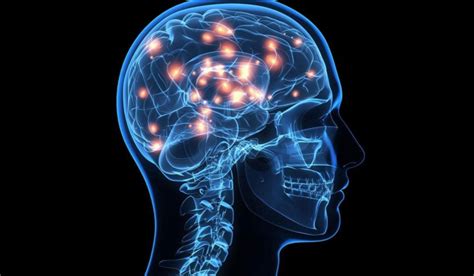A Legacy of Excellence in Brain Research
Immerse yourself in the extraordinary world of neuroscience at the University of Pittsburgh. As a top-ranked research institution, Pitt has played a pivotal role in advancing our understanding of the human brain and its complexities.

Groundbreaking Discoveries at the Center of Innovation
Brain Mapping and Connectivity:
Pitt’s scientists are at the forefront of mapping the intricate network of connections within the brain. Using advanced imaging techniques, they have created detailed atlases of brain regions and neural pathways, paving the way for groundbreaking discoveries in neurodegenerative diseases and psychiatric disorders.
Neurodegeneration and Alzheimer’s Disease:
The university’s Alzheimer’s Disease Research Center is a leading hub for research into this devastating condition. With a focus on early detection, prevention, and treatment, Pitt scientists are making significant strides towards unraveling the mysteries behind Alzheimer’s and developing effective therapies.
Excellence in Education and Training
Neuroscience Graduate Program:
Pitt’s highly acclaimed Neuroscience Graduate Program offers a comprehensive curriculum that combines coursework, research, and clinical training. Students gain a deep understanding of the brain and its functions, preparing them for successful careers in academia, industry, and healthcare.
Center for Neural Basis of Cognition:
This interdisciplinary center fosters collaboration between neuroscientists, psychologists, and cognitive scientists. Students and researchers investigate how the brain processes information, makes decisions, and stores memories.
Cutting-Edge Applications and Innovations
Neuroengineering and Brain-Computer Interfaces:
Pitt’s neuroengineers are developing novel technologies for interfacing with the brain. These devices have the potential to restore lost motor function, treat neurological disorders, and enhance human performance.
Neurotherapeutics and Precision Medicine:
Precision medicine approaches are revolutionizing the treatment of neurological conditions. Pitt scientists are leveraging genetic and molecular data to identify personalized therapies that target specific neurological disorders.
Neuroethics and Responsible Science:
As neuroscience advances, it raises important ethical questions. Pitt’s neuroethicists explore the responsible use of neurotechnologies, safeguarding privacy and protecting human rights.
Engaging the Community
Neuroscience Outreach Programs:
Pitt’s outreach programs bring neuroscience to the public, inspiring future generations of scientists and raising awareness about brain health. Through lectures, demonstrations, and hands-on activities, the university fosters a passion for neuroscience in the community.
Collaborations and Partnerships:
Pitt collaborates with leading research institutions, hospitals, and industries worldwide. These partnerships accelerate research and innovation, translating scientific discoveries into real-world applications.
Key Statistics and Figures
- $80 million: Annual research funding dedicated to neuroscience
- Over 400: Neuroscience faculty and staff
- 1250+: Active neuroscience research projects
- Top 10: University ranking in neuroscience research (National Science Foundation)
- 95%: Success rate of Neuroscience Graduate Program applicants in obtaining external funding
Questions to Ask Yourself
- How can neuroscience improve my understanding of my own brain?
- What are the emerging applications of neurotechnologies in healthcare?
- How can I engage with neuroscience research and contribute to its advancement?
Tips and Tricks
- Attend guest lectures and workshops on neuroscience topics.
- Explore online resources and databases for neuroscience information.
- Engage with neuroscience organizations on social media.
- Consider volunteering in a neuroscience research lab.
- Stay updated on the latest neuroscience discoveries by reading scientific journals and attending conferences.
Generating Ideas for New Applications
Neuro-Exploration: Developing wearable technologies that monitor and analyze brain activity during real-world experiences.
Tables
Table 1: Notable Neuroscience Research Centers at Pitt
| Center | Focus |
|---|---|
| Alzheimer’s Disease Research Center | Alzheimer’s disease research |
| Center for the Neural Basis of Cognition | Brain-behavior relationships |
| Institute for Neurodegenerative Disorders | Neurological disorders |
| Brain Trauma Research Center | Traumatic brain injury |
| Center for Neurotechnology | Neuroengineering and brain-computer interfaces |
Table 2: Neuroscience Education Programs at Pitt
| Program | Degree | Duration |
|---|---|---|
| Neuroscience Graduate Program | PhD | 5-7 years |
| Neuroscience Certificate Program | Certificate | 1 year |
| Undergraduate Neuroscience Minor | Minor | 2 years |
| Post-Baccalaureate Neuroscience Certificate | Certificate | 1 year |
Table 3: Notable Neuroscience Faculty at Pitt
| Faculty Member | Expertise |
|---|---|
| Dr. Adrian Hare | Neurobiology of social behavior |
| Dr. Peter Strick | Motor control and cognition |
| Dr. Sylvain Lesné | Alzheimer’s disease |
| Dr. Jelena Radulovic | Neuropharmacology and addiction |
| Dr. Laurie O’Brien | Neuroimaging and concussion |
Table 4: Neuroscience Funding at Pitt
| Year | Funding Amount |
|---|---|
| 2021-2022 | $80 million |
| 2020-2021 | $75 million |
| 2019-2020 | $70 million |
| 2018-2019 | $65 million |
| 2017-2018 | $60 million |
